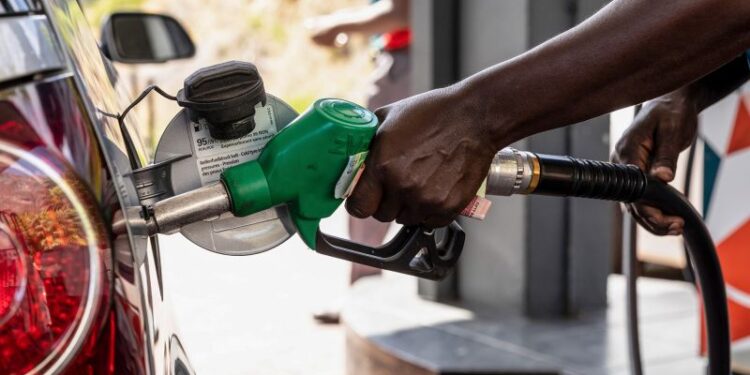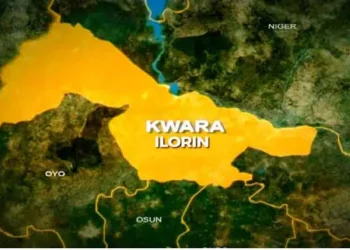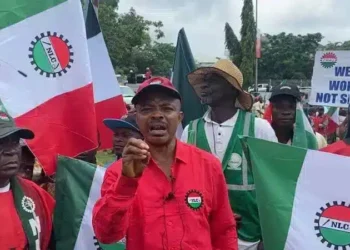Nigerian petroleum marketers are sounding alarm bells over potential petrol prices reaching ₦1,000 per litre in the coming weeks, as escalating tensions between the United States and Iran drive global crude oil prices toward the critical $80 per barrel threshold.
The crisis erupted following coordinated U.S.-Israeli airstrikes on key Iranian nuclear facilities, with President Donald Trump claiming the “preemptive defensive strike” had “obliterated” Tehran’s critical infrastructure. The military action, targeting three major Iranian nuclear sites, has sent shockwaves through global energy markets and raised fears of a broader Middle East conflict.
Iran, which ranks as OPEC’s third-largest oil producer, has vowed swift retaliation for the attacks. In what appears to be a direct countermeasure, the Iranian parliament has reportedly approved moves to close the Strait of Hormuz, a strategic chokepoint through which nearly 20% of the world’s oil supply flows. This development has triggered panic buying in energy markets and heightened concerns about catastrophic supply disruptions.
The immediate impact on Nigeria’s fuel market has been swift and severe. Olatide Jeremiah, CEO of PetroleumPrice.ng, warned that crude oil prices hitting $80 per barrel could push depot prices to ₦1,000 per litre. “Last week’s spike was triggered when Dangote temporarily halted sales, but the refinery has resumed selling at ₦880 for two million litres,” Jeremiah explained, highlighting how even temporary supply disruptions can create market volatility.
The Independent Petroleum Marketers Association of Nigeria (IPMAN) has confirmed that the Iran-Israel crisis, combined with foreign exchange instability, is driving unprecedented increases in petrol prices across the country. As of Sunday, June 22, filling stations nationwide were selling petrol between ₦930 and ₦960 per litre, with significant regional variations reflecting transportation and logistics challenges.
Lagos, typically benefiting from proximity to port facilities, recorded the lowest prices at approximately ₦925 per litre. However, northern regions faced substantially higher costs, with prices reaching between ₦980 and ₦1,000 per litre due to increased transportation expenses and supply chain complexities.
Chinedu Ukadike, IPMAN’s National Publicity Secretary, provided stark context for the crisis. “Crude oil prices have increased from $66 to about $77 per barrel. Both the exchange rate and international oil prices are driving costs up. Dangote and other importers have adjusted their prices accordingly,” he stated, emphasizing how global market forces are directly impacting Nigerian consumers.
The Dangote Refinery, viewed as a potential game-changer for Nigeria’s energy independence, has not been immune to these pressures. The facility raised its price from ₦825 to ₦880 per litre on Friday, triggering a cascade of price increases throughout the supply chain. MRS and other stations selling Dangote petrol subsequently increased their pump prices to an average of ₦955 per litre in the South East and Northwest regions.
The Nigerian National Petroleum Company (NNPC) Limited has also been forced to adjust pricing, increasing petrol to ₦915 per litre in Lagos and ₦945 per litre in Abuja. This move by the state oil company signals the severity of the pricing pressures facing the entire industry.
Other major depots have implemented similar increases, creating a new pricing landscape across the sector. Rainoil jumped from ₦850 to ₦900, while Fynefield reached ₦930. Mainland Depot and Sigmund both settled at ₦920, Matrix in Warri at ₦910, and NIPCO surged from ₦827 to ₦895. Only Aiteo maintained relatively lower pricing at ₦840.
Ukadike warned that the rising cost of lifting 50,000 litres of petrol is creating severe financial pressure on marketers, forcing comprehensive reviews of pricing strategies across the industry. He noted a crucial limitation in the Dangote refinery’s impact on pricing, explaining that despite being locally situated, the facility still sources crude at international prices, diminishing its potential price advantage over traditional imports.
“Unless there’s intervention in the naira-for-crude deal or forex rate, petrol prices will remain volatile,” Ukadike cautioned, highlighting structural issues that extend beyond the immediate geopolitical crisis.
The current crisis underscores Nigeria’s continued vulnerability to global oil market fluctuations despite significant investments in local refining capacity. With Brent crude prices surging and the naira facing persistent pressure against major currencies, consumers are bearing the brunt of international tensions through dramatically higher fuel costs.
Industry observers warn that if the Iran-US standoff escalates further or if the Strait of Hormuz closure materializes, Nigeria could face fuel shortages alongside price increases, potentially triggering broader economic disruptions across transportation, manufacturing, and consumer goods sectors.
The situation represents one of the most serious energy security challenges facing Nigeria in recent years, with implications extending far beyond the petroleum sector.



















